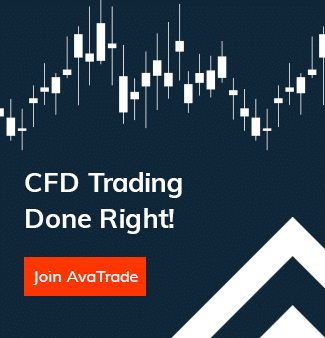The Kraft Heinz Company was founded on July 2nd, 2015 following the merger of Kraft Foods and H.J. Heinz, two companies that have cumulatively served food to the entire world for over two and half centuries. The company has dual headquarters in Chicago, Illinois, and Pittsburgh, Pennsylvania. Kraft Heinz operates in three geographical business segments: US, Canada, and International; and sells its diverse portfolio of products under multiple brand names such as Kraft, Heinz, Oscar Mayer, Kool-Aid, Ore-Ida, Wattie’s, Maxwell House, Planters, Velveeta, and Golden Circle.
As of the end of 2020, Kraft Heinz is one of the leading global food and beverage companies, but its merger constituents had rather humble beginnings. James Kraft founded Kraft Foods in 1903 as a wholesale cheese delivery business, and he grew it consistently until it was later acquired in the 1930s by National Dairy Products Corporation. The Kraft brand name was retained even after several mergers and acquisitions along the way, and in 2007, Kraft Foods Inc. became a publicly-traded company. On the other hand, H.J. Heinz was founded way back in 1869 by Henry Heinz. By the turn of the 20th century, the company had grown to be the largest producer of ketchup, pickles, and vinegar in the US.
Heinz company accelerated global expansion by establishing subsidiaries and acquiring food processing firms around the world. The 2015 merger cemented Kraft Heinz’s position as a permanent top 5 food company in the world, and the company has continued to maintain an active portfolio by launching new businesses, such as Springboard Brands, and acquiring strategic companies, such as Primal Kitchen. Kraft Heinz is listed on NASDAQ where it trades under the ticker symbol KHC. The stock falls in the Consumer Defensive sector, under the Packaged Foods industry.
KHC Stock History
The KHC stock has had a lacklustre performance since the merger. Huge overheads, combined with declining market share, have proved to be heavy for the stock. There has never been any stock split since the merger was implemented.
The stock traded just below $80 when the merger was completed. After a small period of consolidation, it gradually edged higher and managed to print an all-time high at circa $97 in February 2017. It was all downhill from there as the stock shed over 80% of its value, printing an all-time low below $20 in March 2020. While the coronavirus pandemic has wreaked havoc in other industries, the packaged foods industry has found a little reprieve as customers continued to stockpile foods during the pandemic. The positive fundamentals have helped lift the stock to above $30 as of December 2020, as investors looked forward to a long-term rally.
KHC has always been considered a defensive stock that offers long term growth and stable dividends. The company has continued to be a consistent dividend payer, but investors will surely be worried about the overall performance in the stock market.
How to Trade KHC Stock
Kraft Heinz is a high-quality stock for value investors. Here are some of the factors that you should consider when trading KHC:
- Legislative and Taxation Issues
The packaged foods space has always received closer regulatory scrutiny as governments push for healthy products. To achieve their objectives, governments may impose higher taxation on ‘unwanted’ products. Kraft Heinz also faces legal and taxation issues in areas such as product development, labour practices, supply chain transparency, and environmental safety.
- Supply Chain Partnerships and Lifestyle Changes
Kraft Heinz is a giant that has struggled to put the best foot forward in the market. Over the years, the company has achieved success by establishing and maintaining strong distribution channels. But in recent years, key partners such as the restaurant chain McDonald’s has ended their relationships with the company. Another concern for the company is the shift to healthy lifestyle choices by the general public, a danger that will keep on manifesting for the company going forward.
- Competition
Kraft Heinz faces intense and diverse competition for its wide portfolio of products. From mega food companies such as Nestle, Tyson Foods ad PepsiCo to local producers that can offer better margins to distributors, Kraft Heinz faces a never-ending battle to remain relevant among consumers in the market. New product development, as well as acquisitions, have been the favourite plays for the company, but these have inherent risks that are yet to buoy investors.
- Periodic Earnings Reports
The KHC stock is very sensitive to earnings report releases that happen quarterly, semi-annually, and annually. Kraft Heinz’s fiscal year runs from January to December, and the release of periodic earnings reports are important dates for KHC investors. It is well documented that the company has, in recent years, had the burden of dealing with a huge debt load, and investors are usually keen to establish how Kraft Heinz’s performance in the market is helping in this regard. Other important metrics for investors include revenue, net income, and overall margins.
Why Trade Kraft Heinz stock CFDs with Friedberg Direct?
- Locally regulated Canadian broker
- Ability to short sell the KHC stock CFD
- Comprehensive and effective trading resources including advanced Education section
- Transparent pricing, low spreads and competitive leverage
Diversify your trading portfolio and trade Kraft Heinz stock CFDs at Friedberg Direct. Start Now!
** Disclaimer – While due research has been undertaken to compile the above content, it remains an informational and educational piece only. None of the content provided constitutes any form of investment advice.







